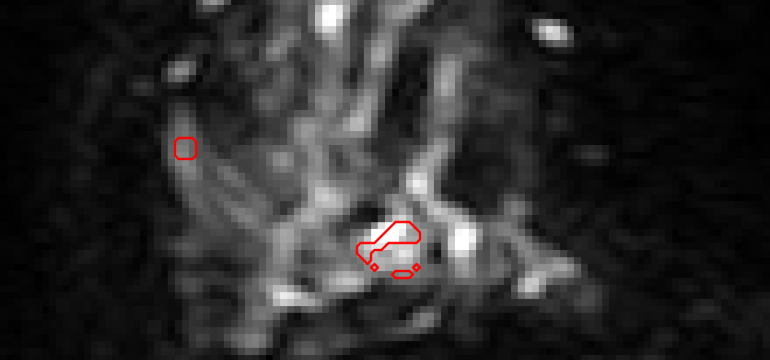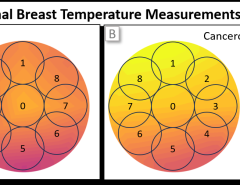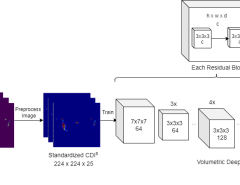Authors: Shir Nitzan, Maya Gilad, Moti Freiman
Published on: April 07, 2024
Impact Score: 7.2
Arxiv code: Arxiv:2404.05061
Summary
- What is new: A new deep learning model with ‘Size-Adaptive Lesion Weighting’ for automatic tumor segmentation to improve pathological complete response (pCR) prediction in breast cancer patients undergoing neoadjuvant chemotherapy.
- Why this is important: The need for accurate pCR prediction in breast cancer treatment without the labor-intensive and error-prone manual tumor segmentation.
- What the research proposes: A deep learning model that automates DWI tumor segmentation and enhances the accuracy of pCR prediction.
- Results: Matches human experts in pre-NAC pCR prediction (AUC of 0.76 vs. 0.796) and surpasses standard methods mid-NAC (AUC of 0.729 vs. 0.654 and 0.576).
Technical Details
Technological frameworks used: Deep learning
Models used: Size-Adaptive Lesion Weighting model
Data used: BMMR2 challenge dataset
Potential Impact
Healthcare, particularly oncology departments in hospitals, diagnostic imaging centers, and companies specializing in medical imaging and AI diagnostics.
Want to implement this idea in a business?
We have generated a startup concept here: PReciseScan.




Leave a Reply